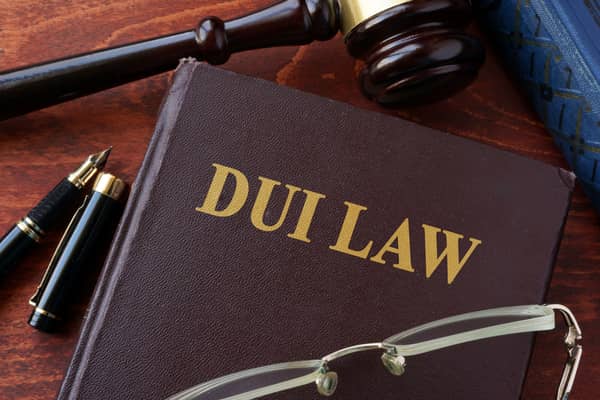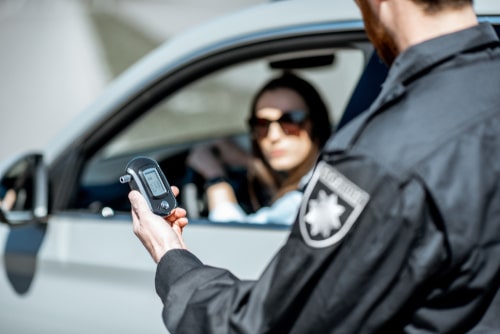DUI is a common term, but what do DWI and OUI mean? In the United States, incidents of drinking and driving that lead to accidents and even fatalities continue to rise at a concerning rate. Therefore, the restriction laws and charges in drinking and driving cases are being modified, strengthened, and strictly implemented in all states.
However, there are intricate differences between the laws and specifics for every state. The most common charges that are associated with drinking and driving are DUI, DWI, and OUI.
The legal bodies that define these charges differ for all of these. Interestingly, in Alaska, all of these three charges are synonymous and have the same specifications.
- Driving Under Influence (DUI): this is the general drinking and driving charge under the Criminal Code of every state law. Under this charge, any person “suspected” of drunk driving can be arrested.
- Drinking With Intoxication (DWI): this is a common term used for referring to DWI or OUI in many states of the USA. The laws and charges associated with DWI can be defined by both the state and the Anchorage Municipal Code.
- Operating Under Influence (OUI): this charge is as defined by the Anchorage Municipal Code for operating vehicles while under the influence of intoxicating chemical substances or alcohol.
Since these are almost the same yet different, getting in touch with an Indianapolis DUI defense attorney is recommended.
Specifics of DUI, DWI, and OUI in Indianapolis
Indianapolis is among the few states that use OUI as an umbrella term for all drunk driving charges.
Wisconsin and Iowa are the only two other states that follow this pattern.
In Indianapolis, Operating Under the Influence refers to any motorist who has a higher blood alcohol concentration (BAC) than permissible while driving. However, a DUI charge can also be made for the same case and it entails the penalties as OUI. Overall, in Indianapolis, DUI and OUI are synonymous, whereas OUI is more widely used. In Indianapolis, there is no use for the term DWI.
Laws Associated With OUI in Indianapolis
It is always a smart decision to know your state laws well, such that you can exercise your right correctly in any situation in addition to following the laws.
Here are the specifics of OUI laws in Indianapolis:
- Drinking and driving law in Indiana: The Code section 9-30-5 of Indiana law prohibits operating any vehicle when intoxicated
- Zero tolerance law: in Indiana, any underage individual with even 0.02% BAC can be charged with OUI. This extremely strict threshold reflects Indiana’s zero tolerance for drinking and driving, especially for minors.
- BAC limits: Indiana has very strict BAC limits. BAC refers to Blood Alcohol Concentration, which is the first thing that is checked if the driver is suspected of OUI. According to Indiana law, the permissible BAC for driving is 0.08%. If any driver is found to have a BAC of 0.08%, it is considered sufficient evidence for an OUI charge.
- BAC levels for commercial vehicle drivers: for drivers operating any commercial vehicle (within or outside work hours), the permissible BAC level is 0.04%.
Bonus: If you are wondering what amount of alcohol results in a BAC of 0.08% and more– here is the answer– for each drink, the alcohol concentration in our body shoots up by 0.02%, so in case you have had 4 drinks or more, it’s safer not to drive.
Penalties for OUI and DUI in Indianapolis
In case you love drinking and believe there will be multiple such occasions for you to decide whether to take the wheel or not, it may be useful to know the associated penalties with OUI charges in cities of Indiana.
-
Class C Misdemeanor
This is the charge for first-time offenders with BAC levels between 0.08-0.15%. This BAC level can be due to alcohol or the use of any controlled chemical substance. The penalty for a Class C misdemeanor involves 60 days of imprisonment and suspension of driver’s license. In addition, there is a fine of up to $500.
-
Class A Misdemeanor
This is a first-time offense charge for drivers with BAC above 0.15%. Class A misdemeanor is also applicable if the safety of any of the passengers was compromised due to the driver. The penalties associated with Class A misdemeanor include 1 year of imprisonment and a $5,000 fine.
In the case of bodily injuries to any person or animal, the OUI charges become felony charges. Each fatality is considered a felony count.
-
Level 4 Felony
This is the first level of charge associated with the death of another person due to a driver’s OUI. The driver’s actions fall under level 4 felony if in addition:
- The driver has a BAC over 0.15%
- The driver has a previous record of OUI in the last 5 years
- The driver’s license had been suspended prior to this incident
The penalties associated with level 4 felony are 2-12 years of imprisonment, suspension of driver’s license, and a fine of $10,000.
-
Level 5 Felony
This charge depends largely on the previous record of DUI against the driver. If the driver is found to have previous OUI charges in the last 5 years, and this is the second offense where no one is injured: it is still considered a level 5 felony. In case the previous OUI didn’t involve any serious injuries, it falls within the level 5 felony category.
The penalty for this charge includes 1-6 years imprisonment, license suspension, and a $5,000 fine.
-
Level 6 Felony
This is applicable to intoxicated drivers above 21 years, with minor passengers in the vehicle. This charge is also applicable for second-time offenders who have caused bodily injuries or death of any person or animal. The penalty for level 6 felony includes- 2.5 to 6 months imprisonment, suspension of driver’s license, and a fine of $10,000.
-
Penalty for OUI in Commercial Vehicles
If drivers of commercial vehicles have a BAC above 0.04%, they will lose their commercial driver’s license for one-three years. In the meanwhile, no probationary license is issued in such cases.
The severity of these charges depends on the following factors which may increase or decrease the penalty
- Age of the driver
- Type of Vehicle
- BAC level of the driver
- Number of passengers in the vehicle
- Number of prior convictions in the criminal record (if any)
- Type of prior convictions in the criminal record (if any)
What to Do if Faced With an OUI or DUI Charge in Indianapolis
The best first step if faced with an OUI charge in Indianapolis is to cooperate with the police. After undergoing the required tests and steps, you should seek legal advice. Ensure to contact a legal attorney who specializes in OUI cases in your area.
Call a Top Indianapolis DUI Defense Attorney Now!
In conclusion, Indianapolis is among the select few states that use OUI as the definitive term for drinking and driving cases. The associated laws and penalties are among the strictest in the entire United States.
Therefore, given the nature of the penalties and the rise in rates of OUI accidents– it is best to be mindful about the laws and call a driver service or Uber whenever you need to travel after drinking. And if you ever find yourself caught in one, it is recommended to contact an Indianapolis, IN, criminal defense attorney to determine the best course of action.










